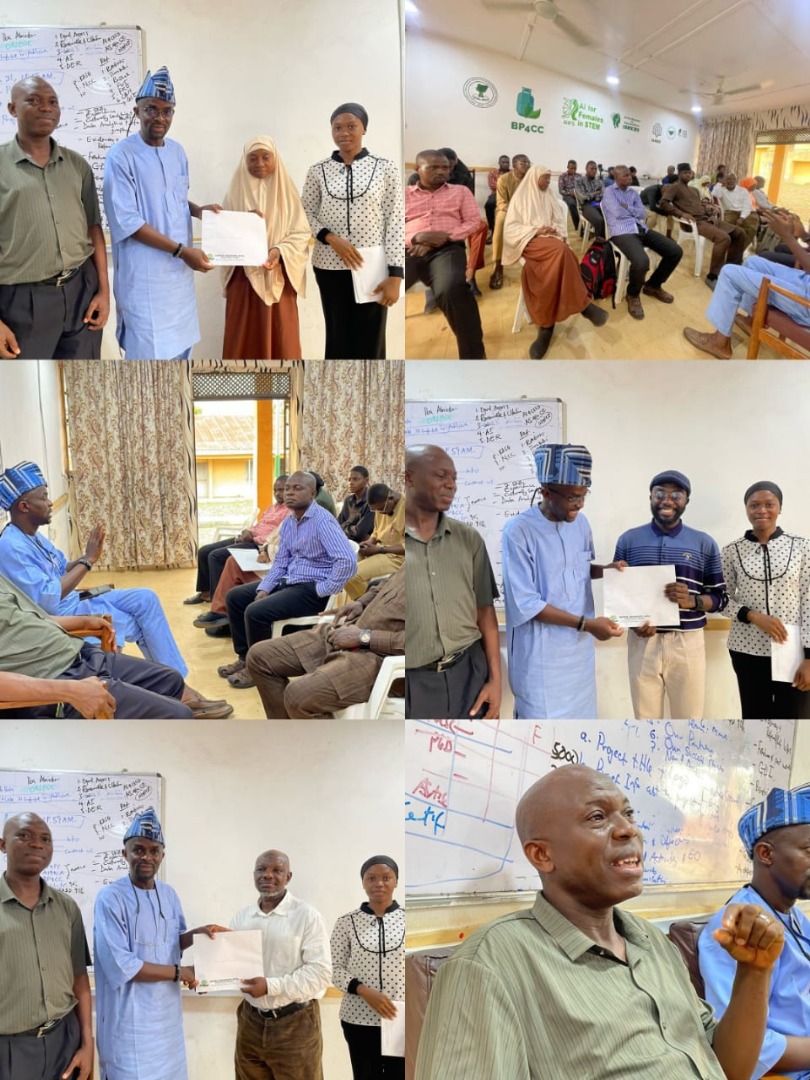The ceremony highlighted a transformative approach to project implementation by empowering team members as sub-Principal Investigators (sub-PIs). Rather than focusing solely on funding allocation, this model assigns ownership of specific tasks to researchers, fostering a democratic and inclusive execution strategy. This aligns with DELitE’s mission to democratize environmental literacy through active participation, leadership development, and context-specific innovation.
The subgrant mechanism strengthens the project’s operational framework by distributing leadership roles, ensuring efficiency, inclusivity, and sustainability. Sub-PIs are tasked with delivering measurable outcomes under structured timelines, applying real-world problem-solving and educational outreach to advance environmental engagement.
Leadership and Innovation in Action
In his welcome address, the Principal Investigator, Professor A. M. Aibinu, underscored the importance of this approach:
“Taking charge of project components enables researchers to build their academic and professional portfolios while contributing to meaningful environmental impact.”
The subgrant model promotes innovation, peer collaboration, and rigorous idea evaluation. Five research proposals underwent a double-blind peer review, with four selected for immediate implementation, reflecting the team’s ability to generate high-quality, project-aligned solutions.
Practical Solutions and AI-Driven Monitoring
The DELitE initiative supports practical, context-driven solutions, including:
- Tree planting campaigns to enhance environmental sustainability.
- Flood management systems through improved drainage and channelization.
- Digital inclusion in environmental education using third-generation AI technologies.
Progress is monitored using AI-driven tracking tools, ensuring transparency and timely delivery. This approach enables continuous learning while allowing researchers to test solutions in real-world contexts.
A Paradigm Shift in Environmental Education
The DELitE Research Subgrant Initiative prioritizes evidence-based documentation, strategic communication, and accountability. By cultivating a participatory and results-oriented research ecosystem, the project accelerates the achievement of its goals and fosters a culture of innovation and leadership.
As the eight-week implementation phase begins on April 1st, 2025, the DELitE team is poised to deliver transformative results, impacting schools, communities, and policy discourse on environmental sustainability in Nigeria.

